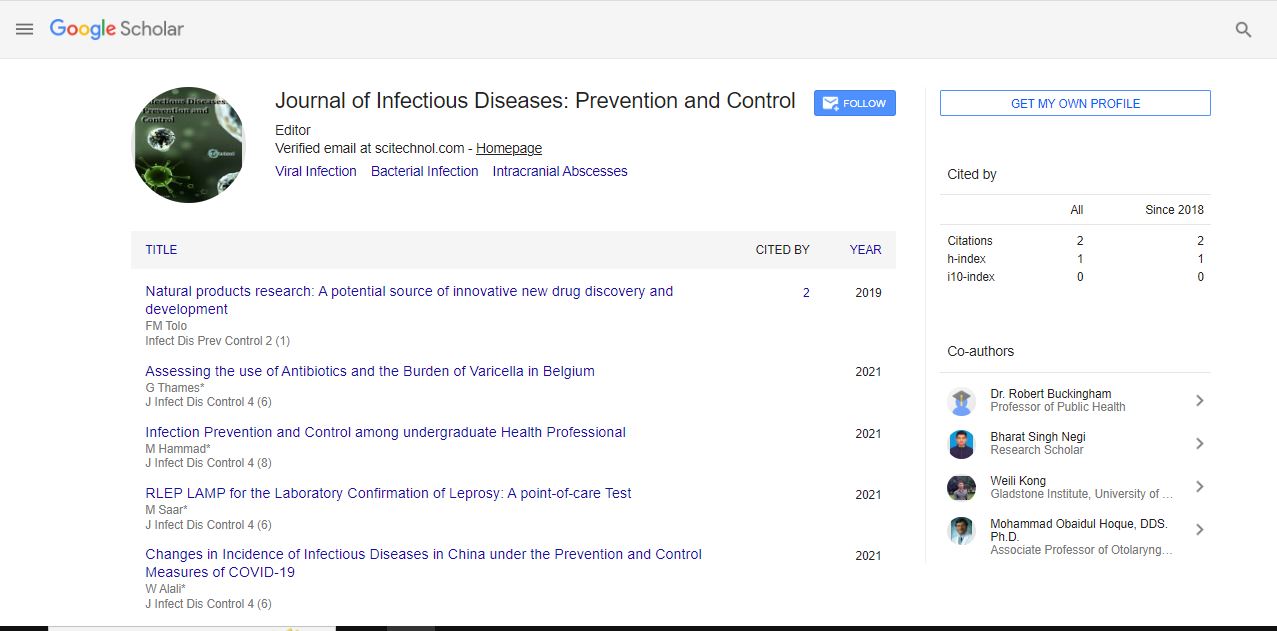Opinion Article, Vol: 6 Issue: 2
The Functions of Helicobacter pylori Metalloprotease in Gastric Disease
Mengjia Liu*
1Department of Orthopaedic Surgery, Catharina Hospital, Eindhoven, The Netherlands
*Corresponding Author: Mengjia Liu,
Department of Orthopaedic Surgery,
Catharina Hospital, Eindhoven, The Netherlands
E-mail: MengjiaLiu546@edu
Received date: 27 May, 2023, Manuscript No. IDPC-23-105496;
Editor assigned date: 29 May, 2023, Pre QC No. IDPC -23-105496(PQ);
Reviewed date: 15 June, 2023, QC No. IDPC -23-105496;
Revised date: 23 June, 2023, Manuscript No. IDPC -23-105496(R);
Published date: 30 June, 2023, DOI: 10.36648/idpc.5.2.138
Citation: Liu M (2023) The Functions of Helicobacter pylori Metalloprotease in Gastric Disease. Infect Dis Prev Control 6:2.
Abstract
Helicobacter pylori, a Gram-negative bacterium, infects the gastric mucosa of humans and is strongly associated with various gastrointestinal diseases, including gastritis, peptic ulcers, and gastric cancer. This article focuses on a specific virulence factor of H. pylori, the metalloprotease gene, and explores its role in the pathogenesis of gastric diseases. Understanding the mechanisms by which this gene contributes to H. pylori-induced gastric damage is crucial for developing targeted therapeutic interventions and preventive strategies
Description
Helicobacter pylori, a Gram-negative bacterium, infects the gastric mucosa of humans and is strongly associated with various gastrointestinal diseases, including gastritis, peptic ulcers, and gastric cancer. This article focuses on a specific virulence factor of H. pylori, the metalloprotease gene, and explores its role in the pathogenesis of gastric diseases. Understanding the mechanisms by which this gene contributes to H. pylori-induced gastric damage is crucial for developing targeted therapeutic interventions and preventive strategies.
Infection with Helicobacter pylori and its connection to stomach disorders are briefly discussed in this section. In order to understand the processes through which H. pylori causes stomach diseases, it emphasizes the need of studying virulence factors. We introduce the relevance of the metalloprotease gene as a major predictor of virulence.
The metalloprotease gene, also known as the HP0169 gene in H. pylori, encodes a zinc-dependent metalloprotease enzyme. The structure and operation of the metalloprotease, particularly its catalytic activity and substrate selectivity, are examined in this section. The genetic variability of the metalloprotease gene among different H. pylori strains is also discussed.
The metalloprotease gene plays a crucial role in H. pylori-induced gastric pathogenesis. The various mechanisms by which the metalloprotease contributes to gastric damage. It discusses the proteolytic activity of the metalloprotease on host proteins, including tight junction proteins, leading to disruption of the gastric epithelial barrier. It also explores the involvement of the metalloprotease in immune modulation and evasion.
The interplay between the H. pylori metalloprotease gene and host factors is a critical aspect of gastric pathogenesis. It examines how metalloprotease affects the host immune system, including how it influences the production of cytokines that promote inflammation and the regulation of host immune cells. The influence of host genetic variations on the susceptibility to H. pylori-associated diseases is also discussed. Understanding the clinical implications of the metalloprotease gene is crucial for patient management. The association between the metalloprotease gene and the severity of several gastrointestinal conditions, such as gastritis, peptic ulcers, and gastric cancer, is examined. The potential of the metalloprotease as a diagnostic marker or therapeutic target is also examined.
Targeting the metalloprotease gene represents a potential avenue for therapeutic interventions against H. pylori-associated gastric diseases. The H. pylori metalloprotease gene represents a significant contributor to the pathogenesis of gastric diseases. Further research on this virulence factor will helpful for the development of innovative therapeutic strategies and preventive interventions to combat H. pylori-associated gastric pathologies.
Understanding the functions of Helicobacter pylori metalloprotease provides valuable insights into potential treatment strategies. Developing targeted therapies that inhibit the activity of this enzyme could helpful for reducing the impact of H. pylori-associated diseases. There are so many challenges during treatment for this disease. First, any therapeutic approach should selectively target bacterial metalloprotease without affecting essential host metalloproteases. Second, the complexity of bacterial virulence mechanisms and their interplay necessitates a multi-pronged approach that targets various aspects of H. pylori infection.
Currently, antibiotics are commonly used to decrease H. pylori infection. These methods often include a combination of antibiotics, such as clarithromycin, amoxicillin, and metronidazole, along with proton pump inhibitors to reduce gastric acid production. However, antibiotic resistance is an emerging concern, limiting the effectiveness of these treatments.
Some research suggests that certain probiotics could potentially inhibit H. pylori growth and attenuate inflammation. Probiotics may modulate the gut microbiota, providing an unfavorable environment for H. pylori colonization. However, their exact mechanisms and effectiveness require further investigation. Developing inhibitors specifically targeting H. pylori's virulence factors, including the metalloprotease, is an innovative strategy. These inhibitors could potentially decrease the bacterium's ability to colonize the stomach, evade the immune response, and induce inflammation. Vaccination against H. pylori has been explored as a preventive strategy. Targeting the metalloprotease or other critical virulence factors in vaccine development could potentially provide protection against infection and related diseases.
 Spanish
Spanish  Chinese
Chinese  Russian
Russian  German
German  French
French  Japanese
Japanese  Portuguese
Portuguese  Hindi
Hindi 